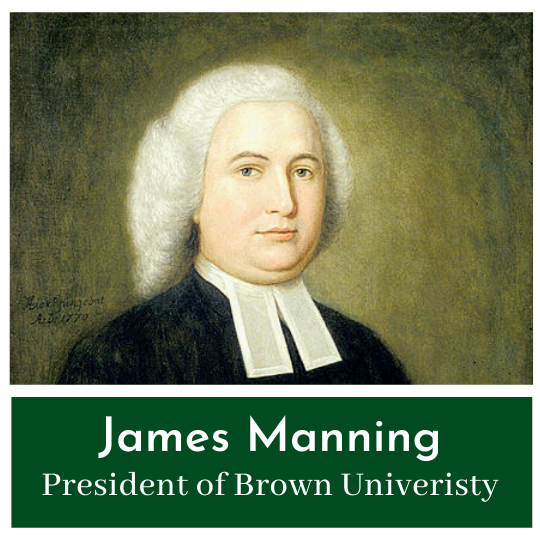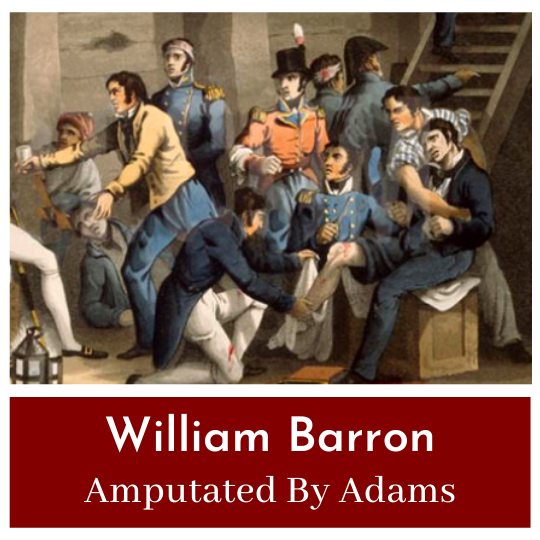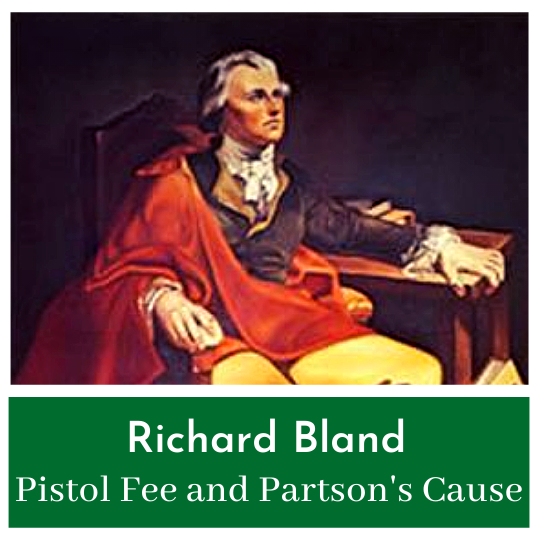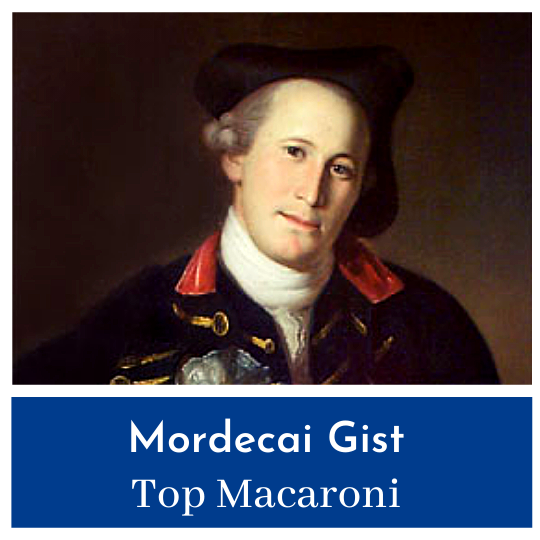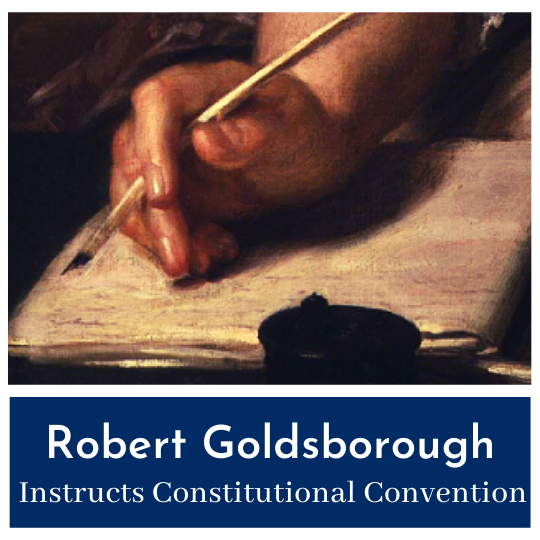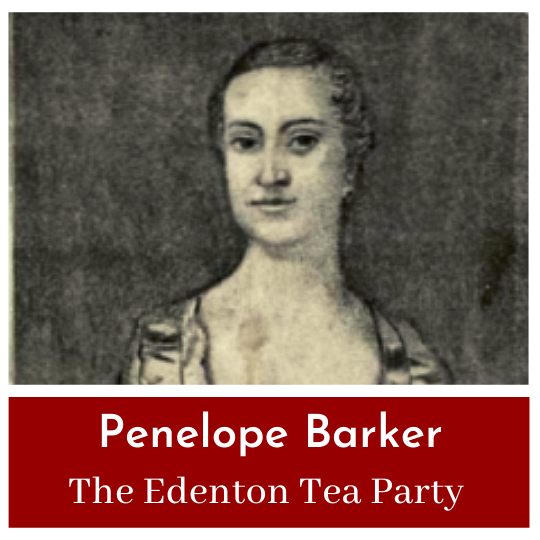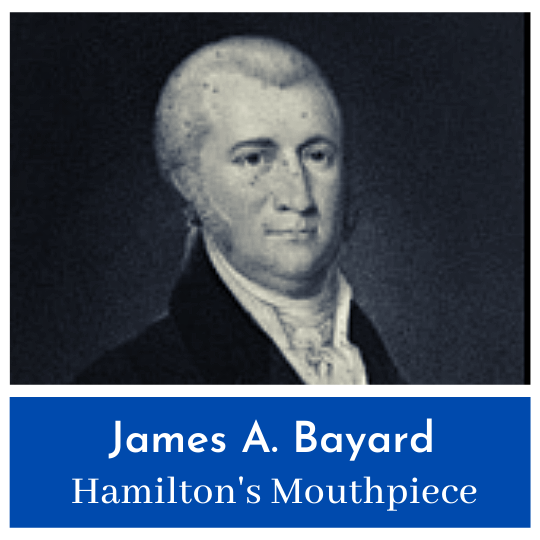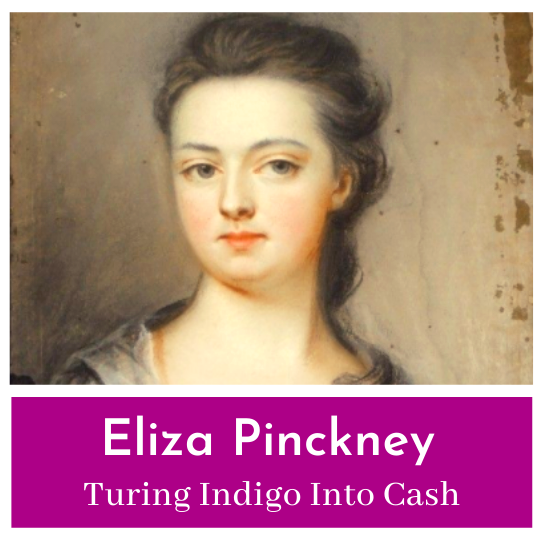John Fitch was an inventor who demonstrated his steam boat in front of the Constitutional Convention Delegates.
All in Stories
Former Chancellor John Lansing Vanishes
John Lansing walked out of the Constitutional Convention because he believed it’s members were exceeding their power.
Richard Howly Escapes with the State Archives
Richard Howly was Governor and Chief Justice of Georgia
James Manning, Brown University and The French Army
James Manning was the first President of Brown University.
The Man John Adams Helped Amputate - William Barron
William Barron was a Lieutenant on the ship which was carrying John Adams to France when a mishap put them both in an uncomfortable situation.
Samuel Livermore Recommends Vermont Statehood
Samuel Livermore was an inaugural member of the US House of Representatives who had spent time as the Continental Congress’ Grand Committee chairman.
Messrs. Alsop & Company - The Secret Committee's Fake Business
John Alsop was at the head of the fake company which covertly purchased supplies for the Continental Army.
Joseph Jones and the Letter that Saved America
Joseph Jones wrote one of the most important letters in American history, though the influence was not because of the content but rather a certain Commander-in-Chief's inability to read it.
Edmund Pendleton and the Scandal That Started a Revolution
Edmund Pendleton was a Virginian Revolutionary, but his most notable moment was his involvement in a scandal that almost bankrupted his colony.
Thomas Burke Escapes A British Prison Camp
Burke spent time as a Continental Congressman, saw military action, and was voted into office as the Third Governor of North Carolina.
Richard Bland and the Early Days of American Rebelliousness
Richard Bland was arguing against unfair British taxes long before most of the other Founders came of age.
Mordecai Gist Redefines Dandy
Mordecai Gist was leader of the Maryland 400 who held off the British at the Battle of Long Island while the rest of the Continental Army made their retreat.
Stephen Higginson Throws Shade At John Hancock
Stephen Higginson was a privateer who helped fight the Revolutionary War at sea. His most notable battle, however, was a public fight with John Hancock.
John Hart - Cave Dweller
John Hart was a New Jersey native who signed the Declaration of Independence the hid in a cave.
Robert Goldsborough Recommends a Government to Washington
Robert Goldsborough was too ill to attend the Constitutional Convention, but sent along his plan for a Federal Government anyway.
Penelope Barker and the Edenton Tea Party
In October of 1774 Penelope Barker organized the all female Edenton Tea Party.
James A. Bayard Does Hamilton's Dirty Work
James A. Bayard was an important Federalist in the House of Representatives during the Adams and Jefferson Presidencies.
Mary Katherine Goddard Reveals the Signers of the Declaration
Mary Katherine Goddard published the ‘Goddard Broadsides’ which was the first to reveal the names of the signers of the Declaration of Independence.
Cowardice and Misbehaviour: The Court Martial of John Wisner
Captain John Wisner was not made for war and his cowardice led to a horrific defeat for the Continental Army.
Eliza Lucas Pinckney Transforms South Carolina's Economy
Eliza Lucas Pinckney’s agricultural experiments led to indigo developing into one of the most profitable crops in South Carolina.



